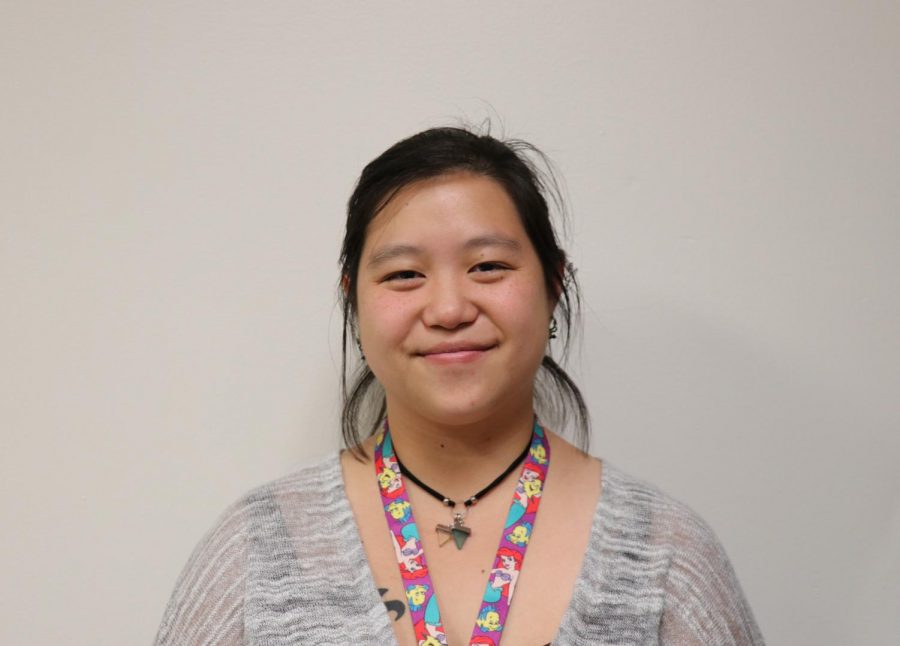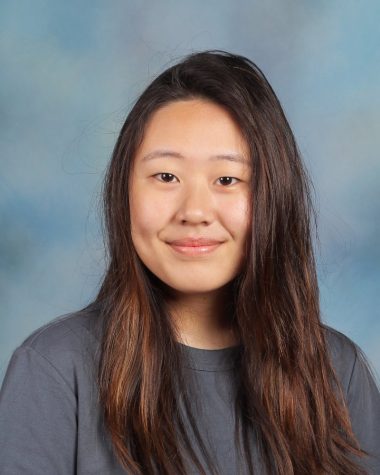Staff Spotlight: Angela Wang
October 24, 2018
As the new school year opens up, new faces ranging from students to staff members have appeared around the school. Among the many new faces is math teacher Angela Wang, who we recently had the chance to interview. Here at Fremd, Wang teaches AP Computer Science Principles, Intro to Computer Science, and Geometry. Growing up in Vernon Hills, she went to DePaul University for her bachelor’s and Northwestern for her master’s degree. Eventually, her path in life led her to become a math teacher who has a visible passion for assisting students by making learning engaging.
When and where did you first start teaching?
So my first teaching job was at a Chinese school in Lake Forest. It was 7th-grade math and then 1st-grade math, so that was a struggle. Then after that, Libertyville High School was my first teaching aide position, and then I got a job at Waukegan High School where I was for three years before here.
Did you enjoy math growing up? What inspired you to become a math teacher?
No. I had a really great math teacher that actually got me to like math, and so in a way, I kind of wanted to become that guy and kind of influence and inspire students who might not enjoy math to at least enjoy it.
Did you plan to become a teacher or was it something that just kind of happened along the way?
So if you ask my three-year-old self I would probably say “Yes I plan to be a teacher” and then as I grew up, it was in the back of my head. My dad is a professor so I kind of grew up with teaching as like a thing I was always aware of, but I didn’t necessarily plan on being a teacher. However, when I had that awesome math teacher I was like, “Aw man, I kind of want to do that.” So I went to college, I didn’t actually take any teaching classes because I just wanted to do math in general, and then kind of like sit on it and be like, “Do I really want to teach?” So I took like one or two to kind of feel for whether or not I would like it, and when I did figure out I liked it, I went on and got my master’s in teaching.
Tell me more about this math teacher. How did his teaching style impact you and your interest in math? How does his teaching style impact you as a teacher?
He just made math so much more understandable, so much more fun. I always try to do that for my students because I know walking in, unless you are like super duper math geek, it’s probably not your favorite subject. While it might still not be your favorite subject, it should at least be a subject you’re not dreading to go into every day, so that’s what I try to get out of my students.
What are your hobbies and interests outside of the classroom? More broadly, what inspires and motivates you in life?
I really like to read, I enjoy video games, listening to music. Sports are definitely not a hobby, although swimming isn’t too bad, but food, sleeping, probably the stuff you guys are also interested in. In life – food, I really enjoy food. You can really get me to do a lot of stuff with that. In terms of goals, I don’t know, just kind of trying to find new things everywhere learning new things every day and just constantly learning I guess.
Do you have a favorite math formula, theorem, or principle? What’s special or unique about this concept and why does it entice you?
Pythagorean Theorem – One reason is that it’s really hard to say and I enjoy saying the word Pythagorean. The more important one is because I see myself using it literally every day, so it’s just an extremely applicable theorem that everyone can understand, so I really enjoy it.
I’m sure you’ve heard students complain about learning abstract concepts in math – what is your response to students who claim that they’ll never use math in the “real world?”
So I get that a lot in geometry because you’re talking about proofs and triangles and parallel lines and you’re like “When am I gonna use this?” and my response is always: geometry is not necessarily about parallel lines and triangles, it’s about logic and reasoning. When you are speaking to someone you’re creating an argument, and that creation of an argument is logic and reasoning. Whether you’re aware of it or not, you are using geometry every day. It just might not look like the problems you see on the paper.
Do you have a message for people who dislike math or proclaim themselves as “bad at math?”
I mean not necessarily a message per se, but just don’t give up. There’s no such thing as “bad at math.” You’ve just kind of got to persevere, and you might not be the best at math, but I feel that everyone, as long as they can apply themselves and work hard towards it, can at the very least do well in math or get something in math and then get something out of math. Whether it’s a theorem you use every day or if it’s just like a C in the class, I feel like those are all successes in their own way.
At the end of the day, what would you say is the most fulfilling aspect of your job?
When I see that light bulb go off in your head. Say you’re struggling with those problems and all of the sudden you just go “Oh my gosh, I get it!” That is literally the best thing I could ever hear coming from your mouth.




